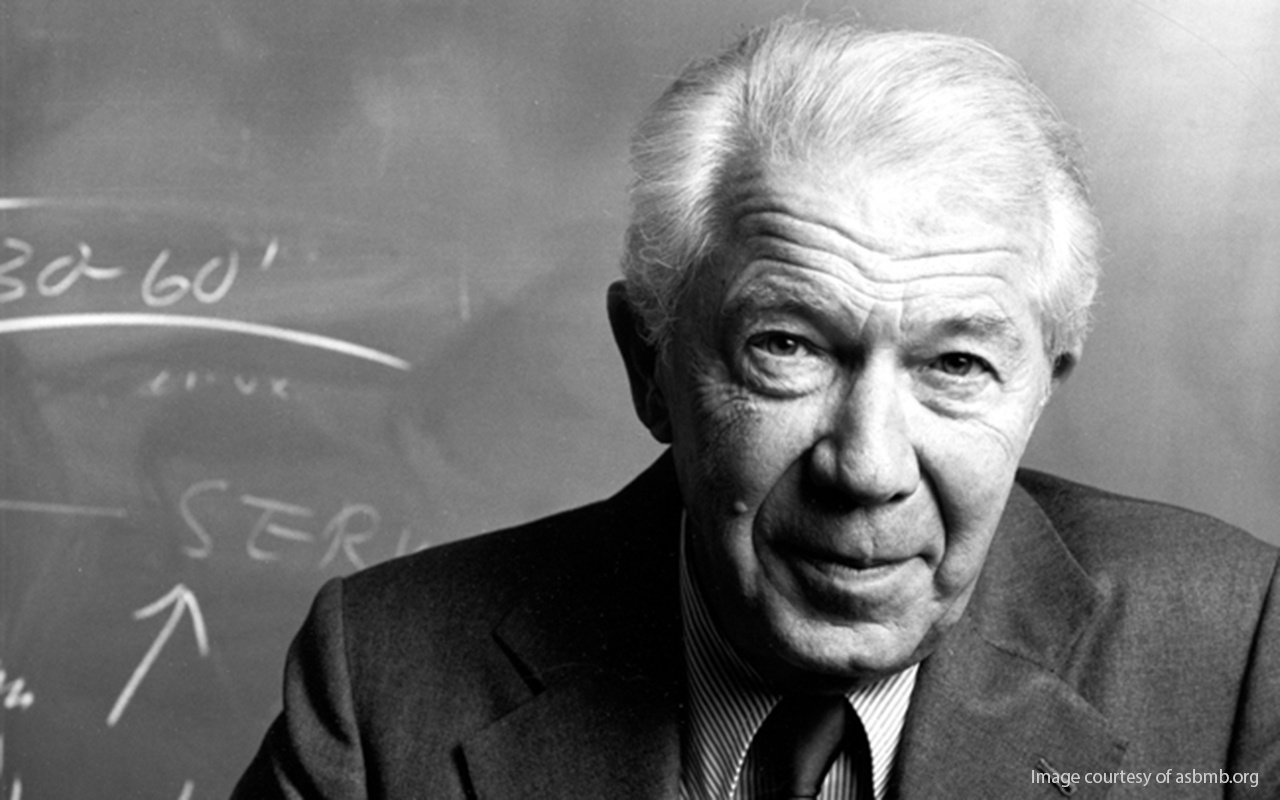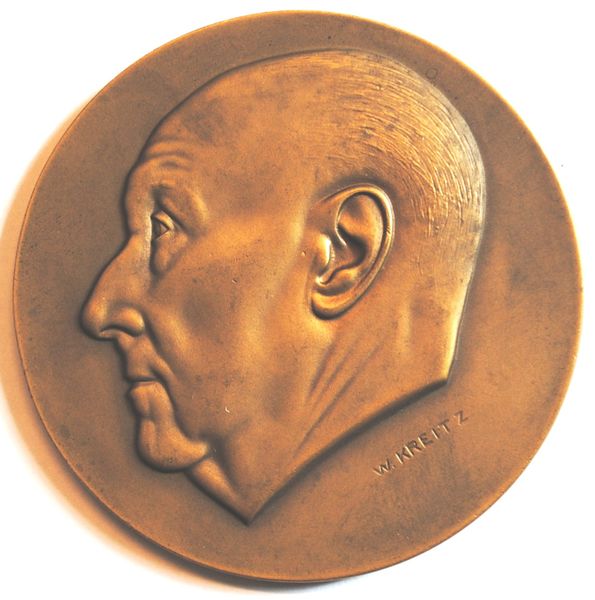Important moments in the history of the F.R.S.-FNRS
The Belgian public does not fully understand that pure science is the necessary precondition for applied science, and that nations which neglect science and scientists are destined to decline.
Albert I of Belgium, 1 October 1927.
The origins of the FNRS
This royal speech was the driving force behind the creation of the F.R.S.-FNRS, at the time called the Fonds National de la Recherche Scientifique): less than a year later, on 27 April 1928, the FNRS was established as a public interest foundation by a group of industrialists and scientists and placed under the leadership of Émile Francqui, a captain of industry, a philanthropist and an important member of Belgian civil society. In just three months, a hundred million Belgian francs were given to the FNRS, not only by wealthy philanthropists, but also by private individuals, demonstrating the real national interest in scientific research.
State involvement
After WWII, the FNRS gradually adapted to both the new realities of Belgian and international politics, and especially the exponential growth of scientific knowledge.
From 1947 onwards, in order to take on the challenge of the internationalisation of research, the FNRS accepted ongoing government subsidies. Before this state intervention, the FNRS relied solely on the income from its assets.
Adapting to society’s needs
During the fifties and sixties, several specialised and complimentary institutions were placed under the guardianship of the FNRS and became known as the Associated Funds. In 1994, the Fund for Research Training in Industry and Agriculture (FRIA) joined them.
Belgium’s progressive transformations into a federal state were integrated in the structures of the FNRS, which became the F.R.S.-FNRS, today committed to the development of research in the Wallonia-Brussels Federation.
The FNRS today
As a public interest foundation, whose budget is more than 90% publicly financed, the F.R.S.–FNRS helps develop fundamental research in the Wallonia-Brussels Federation. It does this by providing additional training to individual researchers and by funding research programmes, mainly in francophone Belgian universities.

The National Fund for Scientific Research - FNRS is a public interest foundation.
The purpose of the foundation is to advance scientific research in the Wallonia-Brussels Federation by granting subsidies both to researchers, thereby enabling them to dedicate themselves to scientific research, and to institutions, thereby enabling them to equip or run research units.
The F.R.S.–FNRS is governed by a Board of Trustees, which represents the foundation in all judicial and extrajudicial proceedings. The Board appoints a Secretary, who oversees the day-to-day management of the Funds. The Board of Trustees and the Committees or Boards of the Associated Funds are the managing bodies of the F.R.S.-FNRS. Read the full details constitution of the F.R.S.-FNRS (only in FR).
The Board of Trustees
The Board of Trustees shall have the power to carry out all actions considered necessary or useful for the fulfilment of the foundation’s purpose.
The Bureau
The Bureau shall examine any issue which must be put before the Board of Trustees, and may add proposals. It shall do the same for any other issue which the Board has asked it to examine.
The Secretary
The Board of Trustees shall appoint a non-member of the Board to the position of Secretary, who may also be granted the title Secretary General by the Board. The Secretary shall oversee the day-to-day management of the Funds within the criteria set by the Board. They shall report to the Board. They shall also inform the secretariat about the meetings of the Board of Trustees and the Bureau.
2010 - 2019
2018
The Observatory of Research and Scientific Careers Pilot Project
The F.R.S.-FNRS was entrusted with this observatory, which aims to monitor and analyse the careers of young researchers, to study how and why people stop pursuing scientific careers and also to study the professional integration of young doctors.

2018
2018
Creation of the Art Research Fund
This new Fund aims to develop art research and enable art colleges and universities in the Wallonia-Brussels Federation to establish a special relationship between art research and teaching.
2017
Cooperation agreement
with the Swiss National Science Foundation.
2017
2016
Cooperation agreement
with Les Fonds de recherche du Québec.
2016
Launch of the EOS - Excellence of Science programme
With the EOS programme, the F.R.S.-FNRS and the FWO (Research Foundation - Flanders) have joined forces to promote closer collaboration in research between the Flemish and French communities in Belgium. The programme succeeds the Federal Interuniversity attraction poles. The EOS programme aims to promote joint research between Flemish and French researchers by funding shared fundamental research projects in all scientific disciplines.

2016
2015
Cooperation agreement
with the Fundação de Amparo à Pesquisa do Estado de São Paulo (Brazil).
2014
Cooperation agreement
with the Luxembourg National Research Fund (Grand Duchy of Luxembourg).
2014
2014
Cooperation agreement
with the National Research Foundation (South Africa).
2014
Adoption of the 2015-2019 PHARE II plan
Following the PHARE I plan, this new refinancing plan proposed a series of measure and key focus areas to meet the needs of researchers.

2014
2013
Implementation of the OCN (Organe de Concertation et de Négociation du F.R.S.-FNRS)
2013
Financing decree
Wallonia-Brussels Federation for the F.R.S.-FNRS and its specialised Associated Funds.
2013
2013
François Englert, Nobel Prize in Physics

2013
Creation of the Fund for Strategic Fundamental Research
The Fund for Strategic Fundamental Research (FRFS) is a F.R.S.-FNRS specialised associated Fund which has been tasked by the Walloon Government with the funding of outstanding fundamental research on key strategic focus areas:
- research into the sustainable development focus area, called WISD;
- research into FRFS life sciences focus area, called WELBIO.
2013
2012
Creation of FRESH (Human Sciences Research Fund)
The goal of FRESH is to support fundamental research into human and social science, with a focus on its societal impact.
2011
The F.R.S.-FNRS and the FWO become 2 of the 7 founding members of Science Europe.
2011
2000 - 2009
2009
Publication of the PHARE I refinancing plan

2009
2008
Véronique Halloin, Secretary General of the F.R.S.-FNRS

2007
Creation of the European Research Council

2007
2006
NCP-FNRS

2005
Cooperation agreement
with the National Research Foundation of Korea (South Korea).
2005
2000
The Quinquennial Prizes take on their current form

1990 - 1999
1998
Cooperation agreement
with the Ministerio de Ciencia, Tecnologia e Innovacion Productiva (Argentina).
1998
1997
Cooperation agreement
with the Czech Academy of Sciences (Czech Republic).
1994
Increased collaboration with the French National Centre for Scientific Research (CNRS)
Increased collaboration with the CNRS including the establishment of the LEA (Laboratoire Européen Associé), “Structure-function of biomolecules”, bringing together the Lille, Brussels and Gembloux laboratories.
1994
1994
Creation of the Fund for Research Training in Industry and Agriculture (FRIA)

1993
Cooperation agreement
with the Magyar Tudomanyos Akadémia (Hungary).
1993
1992
The FNRS becomes the F.R.S.-FNRS and the FWO


1990
Cooperation agreement
with the Polska Akademia Nauk (Poland).
1990
1990
The Belgian National Lottery participates in funding the FNRS

1980 - 1989
1989
Creation of Télévie

1989
1988
Reform of the Belgian State and the FNRS
Up until the 1988 Reform of the State legislation, the FNRS fell under the scope of the Belgian Science Policy Ministry. Following the 8 August 1988 law on the funding of the Communities and Regions, the Flemish and francophone Communities each had to manage their own research and higher education budgets.
1988
Marie-Josée Simoen, Secretary General

1988
1984
Cooperation agreement
with the Consejo Nacional de Investagaciones Cientificas y Tecnicas (Argentina).
1984
Cooperation agreement with the NIH

1984
1984
Cooperation agreement
with the Conselho Nacional de Desenvolvimento Cientifico e Tecnologico (Brazil).
1981-88
Multiple cooperation agreements
with various Chinese research organisations.
1981-88
1980
Cooperation agreement with the NSF

1970 - 1979
1978
Expeditions to Greenland and Canada.
The FNRS funded the expeditions to Greenland and Canada led by Professor Louis Beyens.

1978
1977
Ilya Prigogine, Nobel Prize in Chemistry
Ilya Prigogine, an advocate for many FNRS researchers and research projects, was awarded the Nobel Prize in Chemistry

1977
Cooperation agreement with the Japan Society for the Promotion of Science.
1977
1976
Creation of the Medical Ethics Commission.
Creation of the Medical Ethics Commission within the Fund for Medical Scientific Research. The Commission is now an authority on ethical matters.
1975
Creation of a new Quinquennial Prize
The Joseph Maisin Scientific Prize (biomedical sciences).
1975
1974
Creation of the European Science Foundation

1974
Christian de Duve and Albert Claude, Nobel Prize in Medicine


1974
1973
Modification of the status of research fellows
The status of research fellows was changed in 1973. From then on, research fellows were employed on a contractual basis which led to an increase in the cost of a research fellow grant and a decrease in the number of grants overall.
1972
New buildings for the FNRS

1972
1960 - 1969
1969
Linguistic parity
Linguistic parity was adopted, not only by the scientific commissions (which were already operating on this basis), but also by the Boards and Committees of the FNRS and its Associated Funds.
1969
1969
A new Secretary General
Paul Levaux was appointed Secretary General of the FNRS-NFWO and the specialised Associated Funds.

1967
Belgian expedition to the Great Barrier Reef

1967
1965
The law on university expansion
The increase in the number of university students caused organisational and structural problems for higher education institutions. The 1965 law on university expansion profoundly changed the university landscape and had a considerable impact on the importance of the FNRS and how it operated.
1965
Creation of the Fund for Collective Fundamental Research Fund (FRFC)

1965
1965
Creation of two new Quinquennial Prizes
The Baron Holvoet Prize (Human Sciences) and the Ernest-John Solvay Prize (Human Sciences)
1962
The Galapagos Islands
A geopedological mission, funded by the FNRS and initiated by Professor Paul De Paepe, went to the Galapagos Islands to carry out an initial soil study.

1962
1960
First Quinquennial Prize
In 1960, the FNRS awarded its first Quinquennial Prize (the Dr A. De Leeuw-Damry-Bourlart Prize) to draw attention to eminent Belgian scientific research.
1950 - 1959
1959
Creation of the National Council for Science Policy
1959
1958
Creation of the Fund for Medical Scientific Research (FRSM)

1957
Exploration of the South Pole

1957
1955
The first electronic calculator

1954
Creation of CERN

1954
1953
Development of the FNRS III

1940 - 1949
1948
FNRS II: the first bathyscaphe

1948
1947-60
Corneel Heymans, Nobel Prize in Medicine

1947
Creation of the Interuniversity Institute for Nuclear Sciences (IISN)


1947
1947
First government subsidy
1940-45
The FNRS during WWII

1940-45
1930 - 1939
1934
Expedition to Easter Island

1934
1933
Florine’s helicopter

1932
Creation of the Francqui Foundation

1932
1932
Behaviour of ferrous metals at high temperature

1931
Auguste Piccard’s stratospheric balloon


1931
1920 - 1929
1928
The first allocation of funds

1928
1928
The FNRS is born

1927
Creation of a fund-raising committee

1927
1927
Albert I’s “Seraing speech”

1920
The existence of the Fondation Universitaire was formalised by a new piece of legislation,

1920

